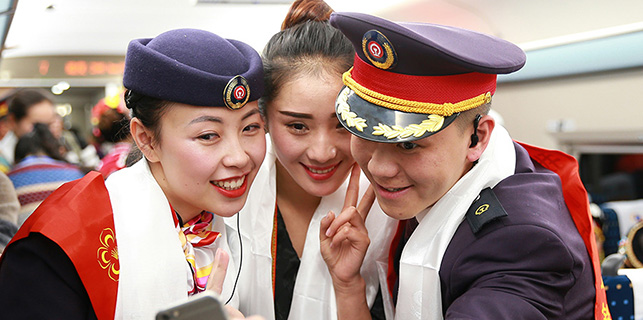Tevez's Shanghai transfer means one less space for Chinese strikers
 |
|
Boca Juniors' Carlos Tevez celebrates after scoring against River Plate earlier this month. [Photo/Reuters] |
Former English Premier League star Carlos Tevez's pending move from Argentina's Boca Juniors to Shanghai Shenhua will earn him a reported 32 million pounds ($39 million) a year. That's 615,000 pounds a week, or about 1 a second.
The transfer, which according to Argentine media is all but done, would make 32-year-old Tevez the world's highest-earning player. In January, young Brazilian star Oscar, 25, will ply his trade across town for Shanghai SIPG, following his record 60 million pound move from Chelsea. No transfer price is available for the Tevez move.
With this kind of money at their disposal, Chinese Super League teams will continue to attract foreign talent, both big-name veterans and prospects.
For Peter Rosselli, CSL analyst and contributor to Chinese soccer site Wild East Football, the trend is both exciting and worrisome.
The league has a quota on non-Chinese players-each club can have four foreigners plus one non-Chinese Asian on its books but a maximum of three foreigners and one non-Chinese Asian in the starting 11. The quota is there to provide opportunities for homegrown talent. Goalkeepers must be Chinese.
Rosselli believes the propensity to splurge on fl ashy, attacking players that sell shirts leads to an imbalance in the league and damages the prospects of the national team.
"Fourteen of the 16 teams in the league have three or more foreign players listed in their squads that you would put in the 'forward' bracket," Rosselli told China Daily. He said foreigners scored more than two-thirds of CSL goals last season.
"The CSL has to rethink the structure of the quota, because, if I owned a Chinese football club, goals win you games and I'm going to go top-heavy until I'm told I can't."
Tevez will join foreign attackers Obafemi Martins, Giovanni Moreno and Demba Ba at Shanghai Shenhua. Rosselli says top-loading teams with foreigners hinders the development of Chinese attacking talent and discourages aspiring local forwards.
"If I was a young Chinese player, I wouldn't bother trying to be a striker, because I can't see the end-game," he says.
Goals have been hard to come by for the Chinese national team. The side has failed to net in its four last Asian World Cup qualifiers and registered only six shots on target across the matches.
On Friday, China's Football Association issued a proposal to limit the number of foreign players named in matchday squads, not simply the starting 11, to three plus one non-Chinese Asian player. If ratified, the new rule will go into effect at the start of next season.






















